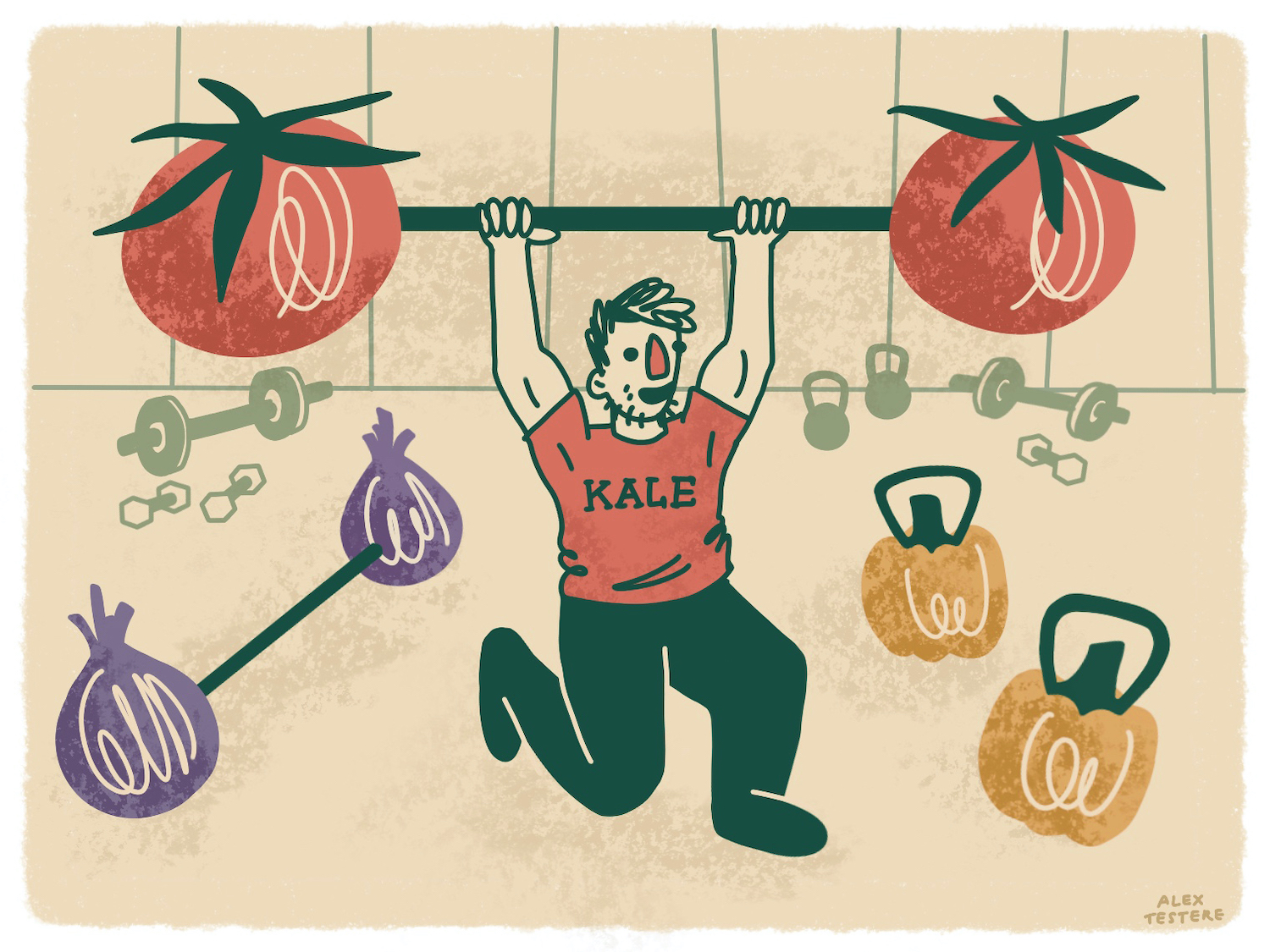Man Enough to Not Eat Meat
I grew up in Bayside—that’s where my mother went when she immigrated from Colombia. She started out in Jackson Heights, but I grew up in Bayside. I grew up eating super Colombian—mainly pork and a lot of fried pastry dishes. Your daily breakfast would be, like, rice and eggs and then arepas, empanadas and a lot of pork. No one seems to look at it as something unhealthy; it’s just a way of life. It’s a culture of starch-based foods, and you’re looking at consuming animal or meat products at least three times a day, and a lot of fried dough. I grew up not thinking too much of it, but then you learn this is actually a bit different than what most people are used to.
I was having a couple of health issues, so on my 21st birthday I completely stopped eating meat. I’m 25 now. I was getting sick of meal-prepping things that I didn’t really want to eat, and it was not sustainable. I was, like, “If there’s a way I can have a form of abundance and a diet where I don’t have to worry about contributing to [killing] animals, and at the same time I’m not contributing to the depletion of the planet …” But really, it started with me just wanting to find a sustainable diet.
I was lucky because I was able to completely cut it out cold turkey. But it wasn’t easy at all. Just because you’re not consuming meat does not mean that you’re necessarily being healthier. So in the very beginning, I was not living a healthier lifestyle. I didn’t really have a plan; I didn’t have any recipes. I didn’t know how to cook at the time, and I just was, like, “I’m going to have to teach myself.” I went into it blindly—all I knew was that I wanted to feel better.
I just figured whatever I had that includes meat, I would take it out. So I started by using the process of elimination, just using what I have and then eliminating what I could eat. Then I started to do more research. I felt better mental stability, and I began feeling more confident. Then I started to see some of the more physical things. I was losing weight gradually, and it didn’t feel forced. I began to look forward to mornings and preparing meals, and that’s something I had never been accustomed to. I began to eat slowly and really appreciate what I was eating.
Initially, I noticed that the only people that had a problem with it or had something to say were the men in my life. There were people that went a little over the top, trying to make it seem as if they’re educated enough to tell me what my dietary choices should be. I think masculinity makes a lot of these guys think that they just have to stuff their faces with steak and pork, and I just was getting tired of that. I wasn’t really enjoying that life.
Before, I was under the same ideology that men are supposed to eat meat. You grow up with that mind-set. So my whole life I was just trying to fit in, and I almost didn’t make the transition, because you start letting other people’s opinions make your dietary choices when you’re only going to know what works for you. It’s not really anyone else’s opinion. It’s kind of upsetting, because they make it seem as if you’re hurting yourself.
A lot of people were concerned about me; a lot of friends thinking that it’s just a phase or nothing too serious. I had no support in the beginning, and that was probably the most challenging barrier. When you’re out and you’re doing things socially, it can also be a tough barrier. When I first became vegan, and would go out to restaurants to socialize, all the appetizers would be things like burgers, and the only thing to get on the menu is meat. You start avoiding places like that, so socializing becomes more difficult. And sometimes it gets embarrassing when people mention it for you, like, “Oh, he doesn’t eat meat—he’s vegan.” Then it becomes a topic of conversation, and the term itself is something I don’t really like to associate with. I guess “plant-based” is the better term, even though it’s pretty much the same thing.
I’m just happy that I made the transition ultimately.
As told to Edible Queens Editor Abby Carney.






